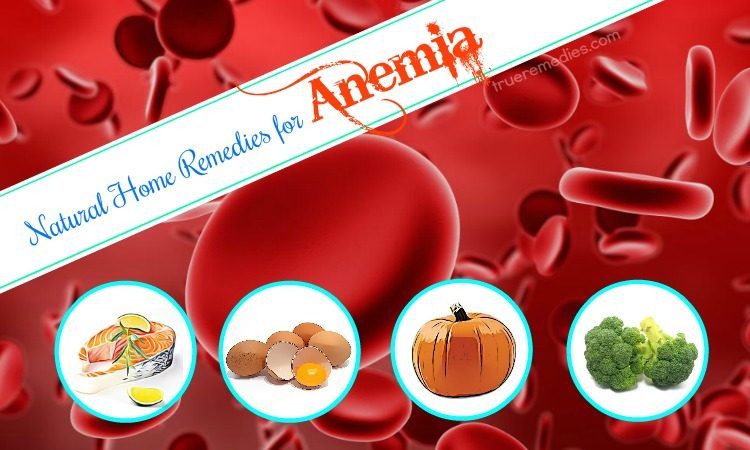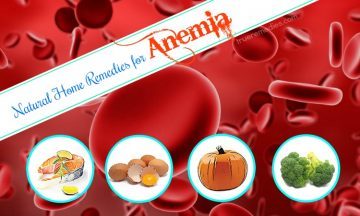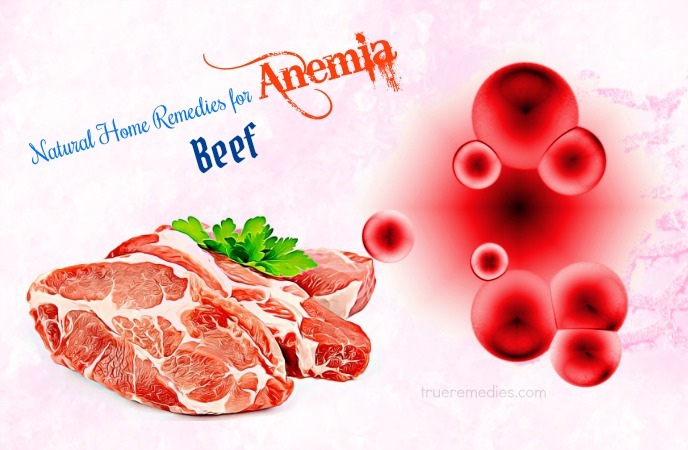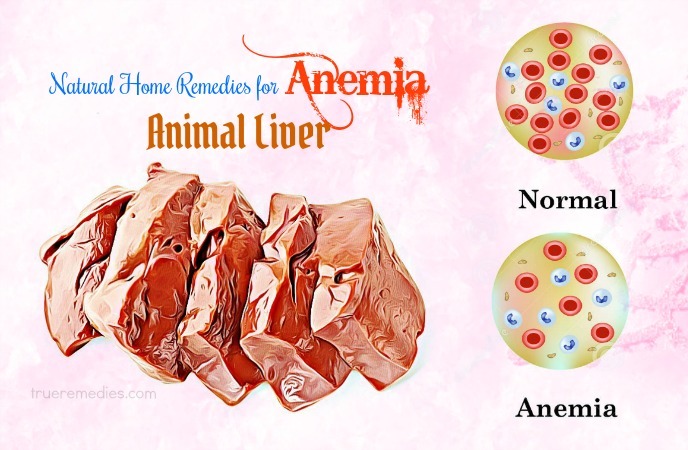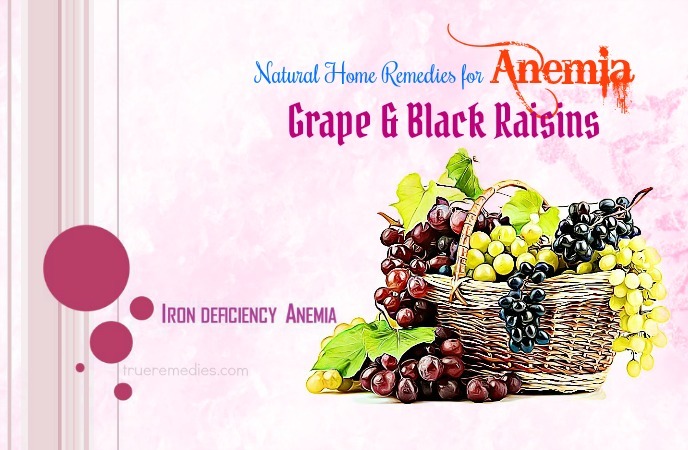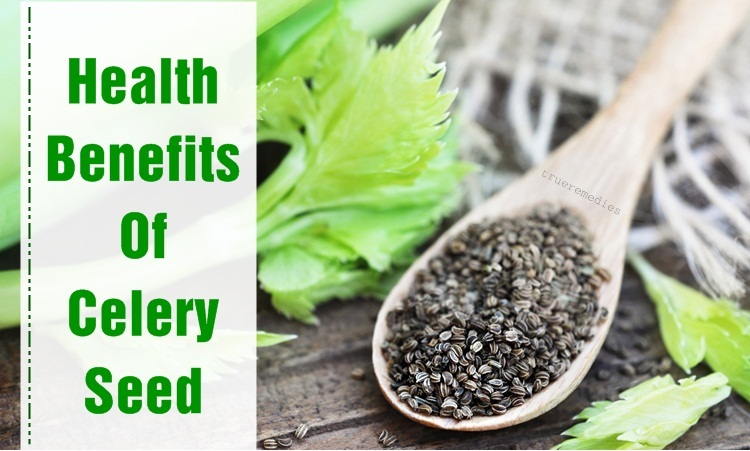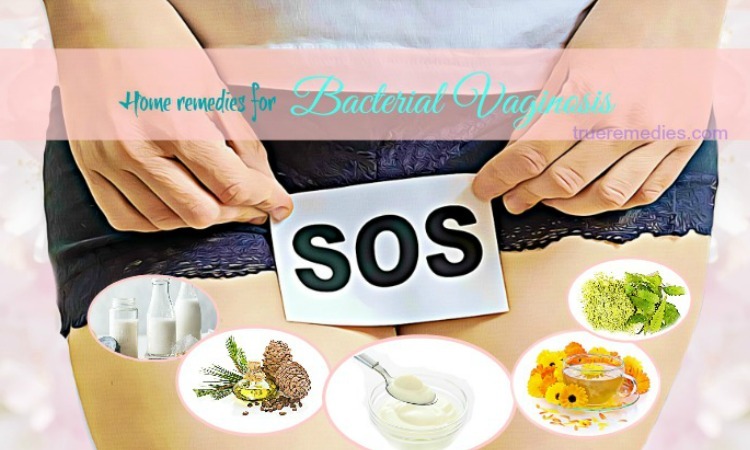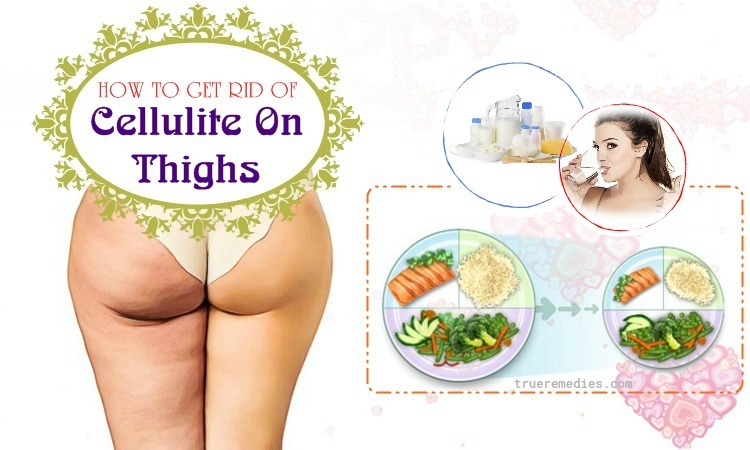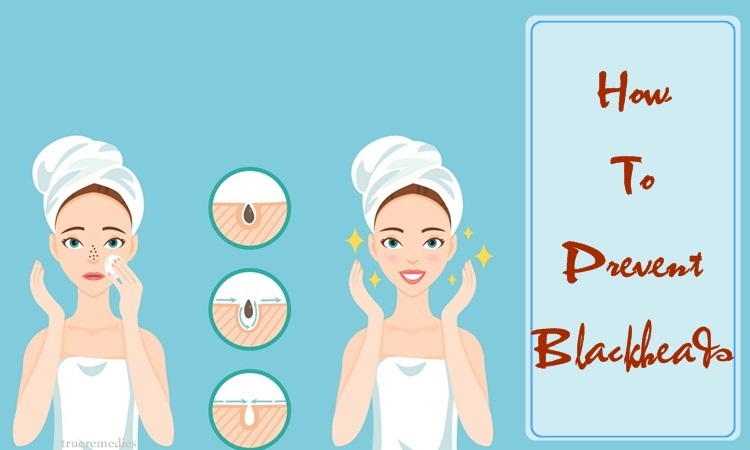updated: 11/21/2019
CONTENTS
Anemia is a common blood disorder in women and children. Many people think that anemia is not important but it is really a threat to our health. For women, anemia is very dangerous, especially in pregnant women. Anemia increases the risk of preterm labor, fetal malnutrition, increased morbidity and mortality rates for both mothers and children at birth. In this case, anemia can easily lead to hemophilia and even death. To prevent or improve anemia if your condition is not too severe, you can completely apply the home remedies for anemia below. These natural remedies are simple, effective and also very safe. It is time to find out what the best natural solutions for anemia are.
What Is Anemia?
Anemia or anaemia is a condition in which the body does not have enough RBCs (red blood cells) or hemoglobin in the blood to function as an oxygen supply. Hemoglobin is a protein rich in iron that makes red blood. This protein helps red blood cells carry oxygen from the lungs to the rest of the body. If you have anemia, your body does not get enough oxygen-rich blood. This makes you feel tired or weak. You may also have other symptoms such as difficulty breathing, a poor ability to exercise, dizziness, or headache. The initial manifestation of mild anemia is the skin of patients is pale, they often feel tired, dizzy, and poorly focused. Without proper attention and treatment, anemia can have a very negative impact on the health of the sick. The three main types of this problem are due to decreased red blood cell production, increased red blood cell breakdown, and blood loss.
Each type of anemia has its own cause. Sometimes, the cause of anemia can hardly be determined. Anemia can be temporary or permanent and it can range from mild to severe.
There are many common types of anemia:
- Anemia Due To Iron Deficiency
Iron-deficiency anemia is very prevalent, affecting from 1% to 2% of adults in the United States. The cause of this condition is due to deficiency of iron elements in the body[1] [2]. Bone marrow needs iron to make hemoglobin. Without enough iron, the body cannot make enough hemoglobin for red blood cells. As a result, the body is anemic due to iron deficiency.
TrueRemedies Partner Solutions

Need a Help from the Leading Expert Online, Available 24/7?
They’re all here and ready to answer your questions online or by phone. Keep asking questions until you get the answer you need.
- Anemia Due To Vitamin Deficiency
In addition to iron, the body also needs folate and vitamin B12 to produce sufficient numbers of healthy red blood cells[3]. Diets lacking in nutrients can cause decreased red cell production. Also, some people are not able to effectively absorb B12.
- Anemia Due To Chronic Diseases
Some chronic diseases, such as cancer, HIV / AIDS, rheumatoid arthritis, Crohn’s disease, and other chronic inflammatory diseases, can interfere with the production of red blood cells, leading to chronic anemia. Kidney failure can also be the cause of anemia.
- Idiopathic Autoimmune Hemolytic Anemia
This type is very rare. Anemia can be life-threatening because of the decline in the ability of the bone marrow to produce all three types of red blood cells including red blood cells, white blood cells, and platelets. Many times, the cause of this type of anemia is unknown, but it is often thought of as an autoimmune disease.
- Anemia Associated With Bone Marrow Disease
A variety of diseases, like leukemia and dysplasia, can cause anemia by affecting blood production in the bone marrow. Disorders like other cancers from mild blood-producing changes to a life-threatening serious problem. Other cancers of the blood or bone marrow, such as multiple myeloma, marrow hyperplasia, and lymphoma, can also cause anemia.
- Hemolytic Anemia
Develops when red blood cells are destroyed faster than the bone marrow produces a replacement. Some blood diseases can increase the destruction of red blood cells. An autoimmune disorder can cause the body to produce antibodies for red blood cells and destroy them prematurely. Some drugs, such as some antibiotics used to treat infections, can also break down red blood cells.
- Other Types Of Anemia
There are some other rare forms of anemia such as thalassemia and hemoglobin deficiency anemia.
Common Causes Of Anemia?
You will be at high risk for anemia if you experience the following problems:
- Dietary Deficiency Of Certain Vitamins
A diet low in iron, vitamin B12, and folate may increase the risk of anemia.
- Intestinal Disorders
An intestinal disorder that affects the absorption of nutrients in your small intestines, such as celiac disease and Crohn’s disease, increases the risk of anemia. In addition, surgical resection or surgery to the parts of your small intestine, where nutrients are absorbed, can also lead to nutrient deficiencies and anemia.
- Menstrual Periods
In general, premenopausal women are at higher risk for iron deficiency anemia than men and postmenopausal women. That’s because menstruation causes loss of red blood cells.
- Pregnant
If you are pregnant, you are at risk of iron deficiency anemia because iron stores must serve for increased blood volume and a source of hemoglobin for your baby’s development.
- Chronic Diseases
For example, if you have cancer, kidney failure or liver disease, or a chronic condition, you may be at risk for anemia of chronic disease. These conditions can lead to a deficiency of red blood cells. Gradually, chronic blood loss from an ulcer or other sources in the body can deplete the body’s iron reserves. This leads to anemia due to iron deficiency.
- Genetic Factors
If your family has a history of genetic anemia, such as sickle cell anemia, you may also have an increased risk of this condition.
- Other Factors
A history of certain infections, blood disorders, autoimmune disorders, alcoholism, exposure to toxic chemicals, certain gastrointestinal disorders, and the use of certain drugs can affect red cell production and lead to anemia.
Symptoms Of Anemia?
You may have no symptoms if you have mild anemia. If the disease develops slowly, the first possible symptoms may include[4]:
- The mood is not stable, you are very grumpy
- The body feels weak, fatigue or tired more often than usual
- Headache
- Have problems concentrating or thinking
If the anemia is worse, symptoms may include:
- The whites of the eyes are blue
- Nails are crispy and easy to break
- Desire to eat ice or other non-food items
- Feeling a bit stunned when you stand up
- Pale skin color
- Shortness of breath
- Tongue aches
What Are The Possible Complications Of Anemia?
Without treatment, anemia can cause many complications[5], including:
- Serious Fatigue
When anemia is severe enough, you may be so tired that you cannot finish your day job. You may be too exhausted to work or play.
- Heart Problem
Anemia can lead to rapid or irregular heart rhythms (arrhythmias). Your heart must pump more blood to compensate for hypoxemia in your blood when you are anemic. This can even lead to congestive heart failure.
- Dead
Some genetic anemia, such as sickle cell anemia, can be serious and lead to life-threatening complications. Losing too much blood will quickly lead to severe anemia and can be fatal.
When To See A Doctor?
If you have the signs and symptoms mentioned above, you should see a doctor to be tested directly. In addition, if you have any questions about anemia, the content of this article cannot answer you, you can consult the doctor.
Top 15 Natural Home Remedies For Anemia In Adults
1. Beef
Among natural home remedies for anemia, beef is one of the most effective. Beef has a lot of nutrients such as protein, vitamin B12, vitamin B6, zinc, magnesium, and carnitine minerals. In particular, beef is rich in iron[6]. Iron is good for health because it transports oxygen to the muscles through red blood cells, making the body feel full of energy. Iron also plays an important role in the functioning of the liver. Iron promotes the liver to work better and more efficiently. In addition, iron tightly controls blood sugar levels, helping to prevent high blood sugar levels. Under normal liver conditions, iron is a very good element for health. This is reflected in the fact that 1kg of beef is equal to 3 cups of spinach juice. The same amount of beef will give your body 280 kcal of energy, twice as much fish and other meats[7].
All you need to do is to eat beef in moderation to supplement nutrients, help your body prevent or improve anemia. According to nutritionists, a normal person should not eat more than 300-500g of beef per week. It is best to eat only 2 times a week (diet 100-150 grams/meal, depending on weight and fat level to increase or decrease accordingly).
However, experts recommend that you do not eat beef in the evening. Many people think that fat-free beef is often eaten at dinner to control weight. This is a mistake many people make because the abundance of iron in beef goes into the body and this causes the liver to work a lot, while the liver is in need of rest. This will interfere with the biological clock of the liver leading to an abnormal increase in blood sugar. If this condition occurs frequently, the body will be at risk for diabetes and many other chronic diseases.
2. Salmon
Salmon brings us a lot of delicious food such as salmon salad, grilled salmon, and salmon sushi. Besides, the amount of nutrients that salmon bring is not small. Salmon is rich in unsaturated fatty acids. DHA is good for brain development. It contains many vitamins such as D, B12, A, B6 along with elements such as calcium, potassium, phosphorus, and zinc. Furthermore, salmon which contains up to 0.7% iron is a good source of iron for anemia[8] [9].
Eating salmon properly will bring many health benefits. However, if the quality of the salmon is not guaranteed and the fish have eaten wrongly, it will inadvertently carry the disease to the body. Salmon is often used to eat raw, so choosing a clean food source is very important. Proper salmon processing is very important. Each person should eat a minimum of 140 grams and a maximum of 560 grams of salmon a week. Women who are about to be pregnant or are pregnant should not eat more than 280 grams a week.
3. Egg
This is another must-try home treatment in this list of home remedies for anemia[10]. Eggs contain many nutrients and a large number of vitamins such as vitamin A, D, B1, B6, and B12. The nutrients of eggs are concentrated mainly in the yolk. Eggs also contain lecithin to help regulate cholesterol and remove cholesterol from the body
While eating eggs is good for health, but not everyone knows how to eat eggs properly. Adults should only eat 3 to 4 eggs a week. Pregnant people should eat eggs properly and should not eat too much. For children, eating eggs should be more careful:
- For children 6-7 months old, eat only half an egg every day, eat 2-3 times a week.
- For children 8-12 months old, eat one egg yolk, eat three to four eggs a week.
- For children 1 year and older, should eat 3 to 4 eggs a week, can eat all white.
Do not eat raw eggs. If eating raw eggs, the rate of absorption and digestion is only 40%. For boiled eggs, this ratio is almost 100% and for fried eggs are about 91-98.5%. Therefore, it is best to eat boiled eggs to ensure that nutrients such as protein, lipids, minerals, and vitamins are lost at least.
4. Seafood
Like beef, seafood is rich in iron, zinc, and vitamin B12[11]. Seafood also has amino acids that support the production of red blood cells and strengthen the resistance against fatigue and stress[12].
In seafood, oysters provide maximum iron with about 13 mg of iron in 85g oysters. Besides, crabs, shrimp, mussels, and mackerel are also listed as useful in the treatment of anemia because they contain a lot of iron. In 100 grams of sea crab, there are up to 3.8 mg iron. In 100 grams of dried shrimp, there are up to 4.6 mg iron. In addition, the seafood also contains vitamin B12. The deficiency of this vitamin also causes the body to suffer from anemia. That is why it is considered one of the best home remedies for anemia.
Seafood is very nutritious but also comes with some health risks. When you choose seafood, it is important to note the following:
- Do not boil or steam frozen seafood. You should restrict boiling or steaming seafood stored for too long on the freezer. It is better to fry because, after storage time, the bacteria gradually formed in seafood and protein also lost much.
- Do not eat seafood and drink beer at the same time. The combination of beer and seafood is one of the common causes of gout – the disease is a concern for many people today.
- Do not eat fruit and drink tea after eating seafood. Because the amount of tannic acid in tea, when combined with the calcium contained in seafood, will form insoluble calcium, which will irritate the digestive system. You can drink tea and eat fruit after 2 hours from the time you eat seafood.
- Do not eat seafood that has been processed long ago. Seafood is dead or stored at normal temperatures, which are rapidly infiltrated by bacteria and growing.
- Do not eat seafood along with foods rich in vitamin C. Seafood dishes are often very nutritious and fresh. However, it contains high levels of arsenic pentavalent. Normally these substances do not harm the body, but if eaten with large amounts of foods rich in vitamin C, it is harmful to the body.
5. Cereals
Cereal is one of the familiar starchy foods used by many people. As one of the safest and healthy food groups, the use of grains is guaranteed to be non-weight gain, obesity, and age-appropriate. Do not overlook cereals such as wheat, oats, soybeans, millet, and walnuts. This is because they contain a large amount of iron and a good source of carbohydrates for healthy body[13] [14]. Protein is not only abundant in meats. To limit the amount of protein that is bad for your health, you can still get protein in the form of grains. Cereals provide a full range of protein sources such as iron, fats, and vitamins to increase resistance and support the functioning of muscle groups, preventing the risk of anemia and nutritional deficiencies. If you have anemia and need iron supplements in time, the cereal will also be the right choice. Using cereals to provide iron is a very safe and non-side effect when used as much as meat.
6. Animal Liver
Liver of animals such as chickens, pigs, and cows all contain high iron content[15]. In 100g pig liver supply 12mg iron, 100g chicken liver supply 10mg iron and 100g cow’s liver supply 6.5mg iron. However, to remove some of the toxins that may be present in the liver, it is important to wash thoroughly, squeeze clean blood, and cook thoroughly before eating[16].
When choosing the liver to treat anemia, you need to pay attention:
- Patients with high blood pressure should eat less liver. Pig liver contains relatively high cholesterol. If you eat too much at once, it will be loaded with large amounts of cholesterol, leading to hardening of the arteries and cardiovascular disease.
- Do not eat pig liver and foods rich in vitamin C. The copper content which is relatively high can be combined with vitamin C. That causes vitamin C to lose its original effect.
- Pregnant women should not eat pig liver regularly. If pregnant women eat too much pig liver, it will lead to too much vitamin A in the body. This is not good for pregnant women and fetus.
7. Pumpkin
Vegetables are also a food group that cannot be ignored in the presence of cerebral ischemia. According to scientific research, ripe pumpkin contains high levels of catechin, iron, and carotenes. Among the fruits, pumpkin is the champion of iron, vitamins, mineral salts, and organic acids. Recent research has shown that zinc contained in pumpkins directly affects the functioning of red blood cells. Iron is the primary trace element that produces hemoglobin, which may help replenish blood and prevent anemia[17]. You can make pumpkins into many delicious dishes such as pumpkin soup and pumpkin stew with bone.
Note:
- Do not preserve cooked pumpkin in the refrigerator. Absolutely do not preserve the pumpkin in the freezer, as it will turn yellow-brown, not safe to eat.
- Do not eat pumpkin more than twice a week because in pumpkin contains a lot of precursors of vitamin A, so when you eat too much pumpkin, this substance will store in the liver and under the skin. This makes the palms, toes, and nose are yellow.
- People with gastrointestinal disorders limit their eating of pumpkin because of high fiber content.
8. Dark Green Vegetables
Dark green vegetables are rich in vitamins A, C, K, and iron, both in the blood and in the digestive tract[18]. You can choose the following vegetables to prevent or treat anemia:
- Broccoli
Broccoli is not only rich in fiber but also has good iron for improving hemoglobin levels in the blood[19]. At the same time, vitamins A, C, and magnesium found in broccoli are also good for the health of the patient.
- Celery
Celery is a cool vegetable so it is very effective in detoxifying heat. It is also rich in iron, zinc, amino acids, and vitamins that may help stimulate appetite, prevent insomnia, improve the nervous system, and improve blood circulation[20].
9. Carrot
Carrots contain large amounts of beta-carotene. Beta-carotene is not only good for the eyes but also for your blood[21]. In addition, the amount of vitamin A, B, C, D, E as well as other substances such as folic acid, calcium, iron, potassium, magnesium, and phosphorus in carrots are very good for the body. They help promote metabolism and efficient blood circulation.
10. Beans
Beans, such as black beans, red beans, and green beans, are rich in iron[22]. They are also rich in molybdenum – a mineral essential for iron absorption and promoting enzyme function. However, they also contain phytic acid which can reduce the absorption of iron. To reduce the rate of phytic acid, you should soak them in warm water overnight before processing.
11. Grape And Black Raisins
Grapes are rich in vitamins, magnesium, amino acids and iron[23] [24]. This has made the grape is able to help the body prevent and improve anemia. Grapes also help the body detoxify the body and help improve blood regeneration. For pregnant women, grapes not only provide the necessary nutrients for the fetus but also help the mother to better circulation of blood.
Besides eating fresh grapes, you can eat black raisins. Black raisins are one of the highest levels of iron and vitamin C. Studies have shown the magical ability of black raisins as an effective treatment for anemia[25]. Vitamin C enhances the body’s ability to absorb iron, increases red blood cells and hemoglobin. All you need to do is to soak about 10-12 dried black raisins in the water and leave overnight. The next morning, take the black raisins and enjoy. You should eat before having breakfast. Keep doing this for a few weeks in a row and you will see noticeable results.
Note: After eating grapes, you should not drink plenty of water because you may have diarrhea. Besides, do not eat grapes with seafood and milk because it is easy to have abdominal pain, vomiting, and diarrhea. After eating grapes, remember to thoroughly clean your teeth because grapes contain fermented carbohydrates that will cause tooth erosion. The sugar in grapes is a good environment for developing cavities.
12. Apple
Apple has an abundance of amino acids and vitamins that help the body eliminate dead cells, support metabolism and help improve blood red blood cell count. All of this is good for relieving anemia[26] [27]. For this purpose, you should eat at least one apple daily. It is best to eat green apples with their skin. Besides, you can mix fresh beetroot juice and apple juice in equal parts. Add some honey to it and consume twice daily. Thus, don’t miss this treatment when looking for the best natural home remedies for anemia.
13. Banana
This is also a food that people who want to treat anemia should not overlook. Rich in iron, bananas help stimulate the body to produce hemoglobin and other enzymes needed for the formation of red blood cells[28] [29]. This fruit is also abundant in magnesium, which aids in hemoglobin synthesis. You should eat a ripe banana with a teaspoon of honey twice a day to get the best result. You can also mix mashed ripe banana and one tablespoon of amla juice. Consume this mixture twice or thrice a day.
14. Sesame
Sesame seeds contain nutrients including protein, lipids, glucides, fiber, vitamins B1, B2, PP, E, and minerals such as calcium, copper, magnesium, and zinc. Sesame is particularly enriched with iron, which may increase the amount of hemoglobin in the body[17]. To use sesame treatment for anemia, boil one tablespoon of sesame seeds with water for 10 minutes. Then add a teaspoon of honey and drink this mixture every day to get the best result. You can also soak one teaspoon of black sesame seeds in enough amounts of warm water for two hours. Then, grind this combination into a paste and strain it to attain the emulsion. Mix this emulsion in one cup of warm milk. Add a little honey or jaggery and consume it once daily.
15. Yoga Practices
In addition to diet and work science, yoga for anemia is a solution that many people choose. Yoga exercises have many good postures for improving blood circulation to the body and preventing anemia[30] [31]
Here are some of the best yoga moves for anemia, especially those with ischemia:
- Snake Posture
Snake posture is one of the most effective yoga moves for anemia. This action works to stretch the chest, shoulders and abdomen, firm buttocks and stimulate the abdominal organs. In particular, this helps to reduce stress, reduce sciatica, and anemia to the brain.
- Camel Posture
When it comes to home remedies for anemia, this is the effective yoga posture for anemia relief. Not only helps to circulate the blood vessels to the brain, but it also helps the digestive and reproductive system, the spine, the back muscles, shoulders, and arms, and increases the flexibility of the spine.
- Fish Posture
Speaking of yoga for anemia, you cannot miss the fish posture. This action will work to stretch the skin, remove excess fat, especially blood vessels easily circulate.
- Plow Posture
This posture works to stabilize the thyroid gland, detoxify the body, make the skin healthy, and enhance the activity of the digestive organs.
- Wind Relieving Posture
With the effect of enhancing the activities of the internal organs, stimulate nerves, increase blood flow to the skin, massage the skin and other organs in the body, etc. Therefore, this is a good posture for anemia.
- Triangular Posture
Triangular postures have a good effect on muscles, help improve abdominal organs, increase the strength of the spine toughness, especially to relax the spirit. This is also a good exercise for ischemic patients and one of the simple home remedies for anemia.
Yoga for anemia is a widely used method now, but the above-mentioned action requires technical and accurate in every detail. Therefore, to be safe, yoga practitioners should follow the instructor’s guidelines. You should not do the exercises yourself, as this can lead to dangerous joints.
The above home remedies for anemia are safe and natural. If your anemia problem doesn’t improve, consult a doctor or healthcare professional right away. Have you ever tried any of these treatments? Do let us know which ones worked best for you!

